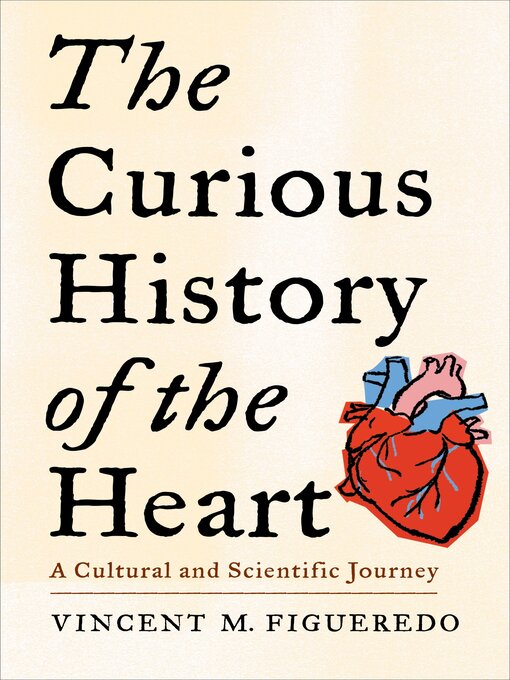Gold Award Winner, 2024 Nonfiction Book Awards
Runner-up, 2024 History category, San Francisco Book Festival
Runner-up, 2024 General Non-Fiction, New York Book Festival
For much of recorded history, people considered the heart to be the most important organ in the body. In cultures around the world, the heart—not the brain—was believed to be the location of intelligence, memory, emotion, and the soul. Over time, views on the purpose of the heart have transformed as people sought to understand the life forces it contains. Modern medicine and science dismissed what was once the king of the organs as a mere blood pump subservient to the brain, yet the heart remains a potent symbol of love and health and an important part of our cultural iconography.
This book traces the evolution of our understanding of the heart from the dawn of civilization to the present. Vincent M. Figueredo—an accomplished cardiologist and expert on the history of the human heart—explores the role and significance of the heart in art, culture, religion, philosophy, and science across time and place. He examines how the heart really works, its many meanings in our emotional and daily lives, and what cutting-edge science is teaching us about this remarkable organ. Figueredo considers the science of heart disease, recent advancements in heart therapies, and what the future may hold. He highlights the emerging field of neurocardiology, which has found evidence of a "heart-brain connection" in mental and physical health, suggesting that ancient views hold more truth than moderns suspect.
Ranging widely and deeply throughout human history, this book sheds new light on why the heart remains so central to our sense of self.
Gold Award Winner, 2024 Nonfiction Book Awards
Runner-up, 2024 History category, San Francisco Book Festival
Runner-up, 2024 General Non-Fiction, New York Book Festival
For much of recorded history, people considered the heart to be the most important organ in the body. In cultures around the world, the heart—not the brain—was believed to be the location of intelligence, memory, emotion, and the soul. Over time, views on the purpose of the heart have transformed as people sought to understand the life forces it contains. Modern medicine and science dismissed what was once the king of the organs as a mere blood pump subservient to the brain, yet the heart remains a potent symbol of love and health and an important part of our cultural iconography.
This book traces the evolution of our understanding of the heart from the dawn of civilization to the present. Vincent M. Figueredo—an accomplished cardiologist and expert on the history of the human heart—explores the role and significance of the heart in art, culture, religion, philosophy, and science across time and place. He examines how the heart really works, its many meanings in our emotional and daily lives, and what cutting-edge science is teaching us about this remarkable organ. Figueredo considers the science of heart disease, recent advancements in heart therapies, and what the future may hold. He highlights the emerging field of neurocardiology, which has found evidence of a "heart-brain connection" in mental and physical health, suggesting that ancient views hold more truth than moderns suspect.
Ranging widely and deeply throughout human history, this book sheds new light on why the heart remains so central to our sense of self.


